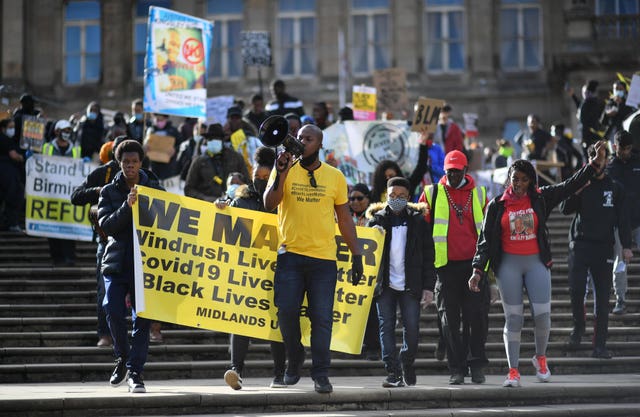John Legend has said that only statues of people who deserve to be revered by the public should remain on display.
The death of George Floyd and subsequent Black Lives Matter protests have reignited debate over whether monuments to controversial British colonial figures should remain standing.
The US singer-songwriter, 41, said it was impossible for people in both the UK and US to avoid confronting their respective histories.
'The one thing we can't do is avoid talking about our histories.' @JohnLegend shares his thoughts on about the legacy of controversial statues. #TheOneShow pic.twitter.com/a5CfqaVxVE
— BBC The One Show (@BBCTheOneShow) June 19, 2020
Speaking on The One Show via video link, he said: “All of us are having to grapple with our histories but one thing we can’t do is avoid talking about history.
“We have to know our history, we have to know the context.
“I think when it comes to statues, we should only have statues up in public places of people that the public should revere.
“If you are going to, say in a public park, put a statue up of someone in that community, then that person should be someone who is held up in honour and reverence in that community.
“If that person doesn’t meet that standard the maybe then statue should go down.”

Legend, who released his latest album Bigger Love on Friday, said many of the recent protests in the US, UK and further afield were “rooted” in “old wounds”.
He said: “The legacy of colonialism, of slavery, is still with us all around the world.
“We are dealing with it in the United States.
“I think so much of the protests that are happening now here and around the world are rooted in these old wounds that have never really completely healed, when it comes to the affects that colonialism and slavery have had on black people and other people of colour around the world.
“It’s a really difficult question to think about statues and other people that we have revered in our history and our myth-making around our countries’ histories, how we look at them now with modern eyes.
“In the States a lot of our founding fathers were also slave owners and helped perpetuate what was a really evil institution.”
